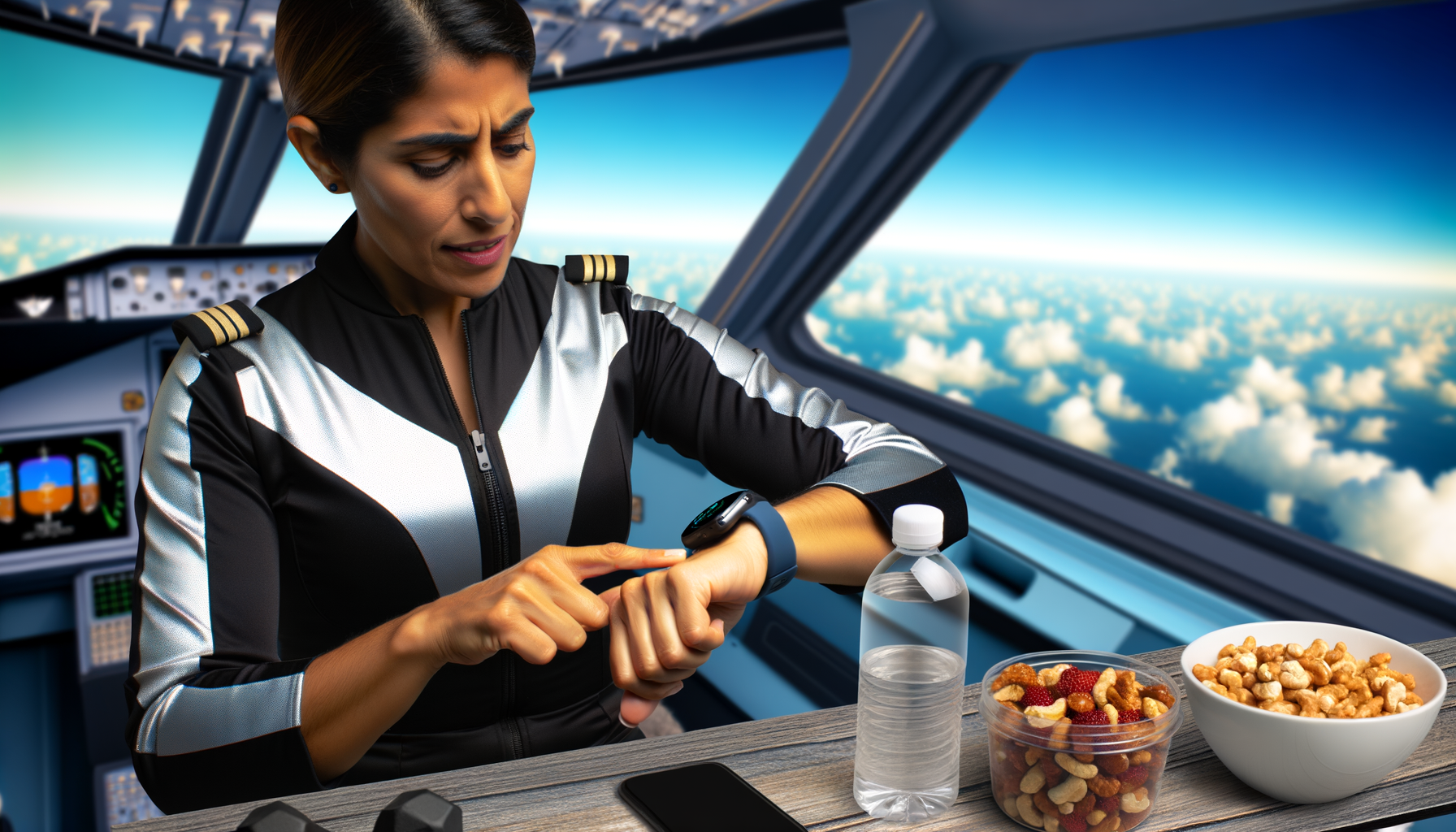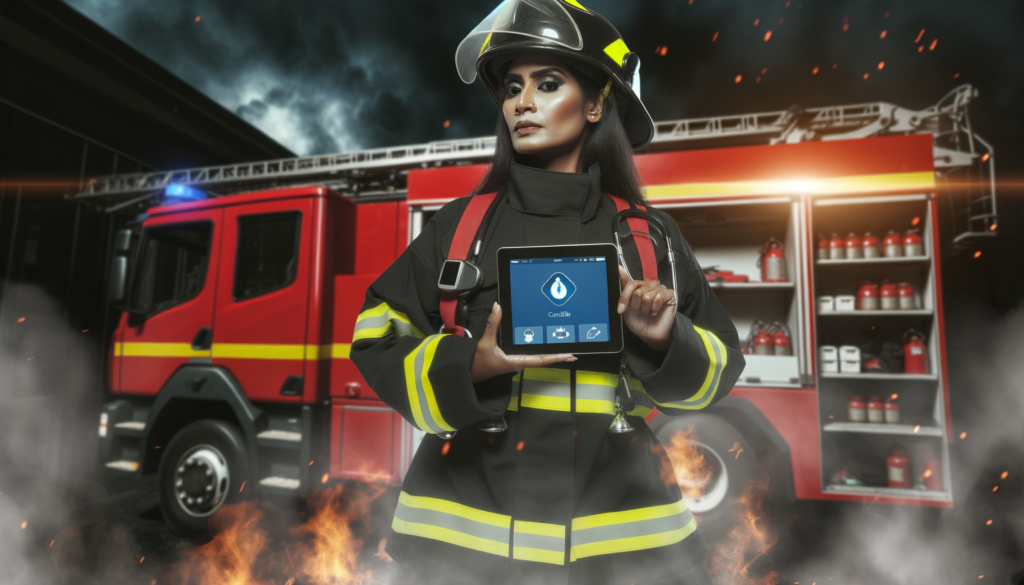Optimizing Energy for High-Performance Mech Piloting
In the fast-evolving realm of mech piloting, where advanced exoskeletons and power armor systems are the norm, maintaining optimal energy balance is critical. The synergy between a pilot and their mech suit depends heavily on precise calorie management to sustain peak physical and cognitive performance during grueling missions. This post explores the cutting-edge concepts of mech suit energetics, exoskeleton nutrition, and power armor fueling, providing an in-depth guide for professional mech pilots aiming to optimize their health and operational efficiency.
The Unique Energy Demands of Mech Pilots
Mech pilots operate in environments that require both extreme physical exertion and mental acuity. Unlike conventional athletes, pilots must fuel not only their own bodies but effectively manage the energetics of their powered suits or exoskeletons. These exoskeletons assist movement but also add weight and impose metabolic demands that differ significantly from traditional human activity.
The human body can be likened to a combustion engine where calories act as fuel, metabolized to provide the necessary energy for activity. For mech pilots, balancing calorie intake with expenditure is complicated by factors such as:
- Increased muscular workload due to suit weight and resistance
- Extended periods of cognitive focus requiring steady glucose availability
- Environmental challenges such as heat dissipation and hydration in sealed suits
Consequently, carefully tailored nutritional strategies are essential for maintaining a pilot’s stamina, agility, and mental sharpness throughout operations.
Calorie Management Strategies for Exoskeleton Nutrition
Effective calorie management begins with understanding the body’s basal metabolic rate and adjusting intake to the unique demands of mech piloting. According to nutrition science, maintaining a balanced diet rich in macronutrients—carbohydrates, proteins, and healthy fats—is vital. This balance supports both immediate energy needs and long-term muscle preservation, which is paramount due to the physical stress mech suits impose.
Studies emphasize the importance of high-protein diets to support muscle maintenance under energy restriction, such as those experienced during prolonged missions. Supplementation with amino acids has also been shown to preserve lean muscle mass, particularly in demanding scenarios where energy intake might be limited yet physical output remains high. This approach is similar to the very-low-calorie ketogenic diets used in clinical settings to sustain muscle while promoting fat loss, which could be adapted for mech pilots under intensive training or recovery phases.
Furthermore, carbohydrate intake remains essential for cognitive function, as glucose is the brain’s preferred fuel. Yet, some pilots might benefit from intermittent energy restriction or time-restricted feeding to optimize metabolic health without compromising alertness—these protocols have shown promise in improving metabolic flexibility and reducing inflammation.
Fueling Power Armor Systems Through Nutrition
Power armor systems are often densely integrated with microprocessors and mechanized components requiring sustained energy. While the suit’s power source handles mechanical energy, the pilot’s biological energy must be optimized to interface efficiently with the suit. Nutritional strategies focus on:
- Rapid energy availability: Incorporating easily digestible carbohydrates and medium-chain triglycerides to sustain cognitive and muscular function.
- Anti-inflammatory nutrients: A diet rich in omega-3 fatty acids (found in fish such as salmon) and monounsaturated fats (found in nuts and avocados) helps reduce systemic inflammation caused by the physical demands and stress of piloting.
- Hydration and electrolyte balance: Power armor helmets and suits may reduce sweat evaporation, risking dehydration. Electrolyte-rich hydration strategies help maintain neural and muscular function.
Such meticulous nutrition mirrors guidelines recommended for professional pilots dealing with high-altitude physiologic challenges, as noted by aviation health authorities.
Practical Meal Planning and Real-World Examples
Professional mech pilots can leverage several meal-planning strategies to optimize their nutrition:
- Pre-Operation Fueling: Emphasize complex carbohydrates and lean proteins 2–3 hours before piloting for sustained energy. Foods like quinoa, grilled chicken, and steamed vegetables ensure steady glucose release and muscle readiness.
- During Breaks: Quick energy snacks rich in healthy fats and simple carbs, such as nuts with dried fruits or energy gels, can maintain blood sugar levels without fatiguing digestion.
- Post-Operation Recovery: Focus on replenishing glycogen stores and repairing muscle with balanced meals high in proteins and antioxidants, e.g., salmon with sweet potato and mixed greens.
Case studies from elite military exoskeleton pilots have shown that integrating amino acid supplements, like those found in specific protein blends, supports faster recovery and improves endurance. Additionally, pilots who follow structured hydration protocols maintain operational effectiveness in environments with variable humidity and temperature inside power suits.
Integrating Technology with Calorie Management
Modern mech pilots can benefit greatly from personalized nutrition tracking tools. Digital platforms such as Calorie Calculator Cloud offer sophisticated features to monitor calorie intake, macronutrient distribution, and hydration status tailored to individual metabolic rates and activity levels.
These tools provide real-time recommendations and logging functions that help pilots avoid under- or over-fueling, which can impair performance or lead to unwanted weight changes. For those interested, a range of plans and features are available at Calorie Calculator Plans, ideal for tailoring fuel strategies to the unique demands of mech piloting.
Further Resources and Expert Communities
For pilots seeking to deepen their understanding of the interplay between nutrition and mech energetics, several professional and scientific resources are invaluable:
- ALPA’s Eating Right to Stay Fit – Tips on balanced nutrition tailored for pilots with a focus on energy management.
- American Journal of Physiology: Calorie Regulation Studies – Comprehensive research on how calories and macronutrients affect energy balance.
- National Institutes of Health: Calorie Restriction Effects – Insights into intermittent fasting and energy metabolism adaptable for pilots.
- Clinical Study on Ketogenic Diets and Muscle Preservation – Data supporting high-protein, low-carb nutrition for muscle maintenance under calorie restriction.
Looking Ahead: Innovations in Mech Suit Nutrition
Future developments in exoskeleton nutrition will likely focus on integrating biometric sensors into suits to monitor pilots’ metabolic states in real time. This would allow dynamic adjustment of energy intake and hydration strategies to match fluctuating demands. Research into specialized supplements designed to synergize with mech suit energetics could further enhance performance.
Advancements in AI-driven nutrition platforms will also play a role by providing mech pilots with hyper-personalized diet plans that consider mission length, physical load, environmental conditions, and individual metabolism.
Maximizing Mission Readiness Through Smart Nutrition
For professional mech pilots, the marriage of biological energy management and technological enhancements defines operational success. Understanding and controlling calorie intake, hydration, and nutrient timing are as critical as mastering the cockpit controls or combat tactics.
By employing science-backed nutrition strategies, leveraging advanced tracking tools like Calorie Calculator Cloud, and staying informed through expert resources, mech pilots can sustain peak physical health and cognitive function, ensuring they remain combat-ready and resilient under the most demanding conditions.
Embrace the future of mechanized human performance—start optimizing your fuel today to power tomorrow’s victories.








